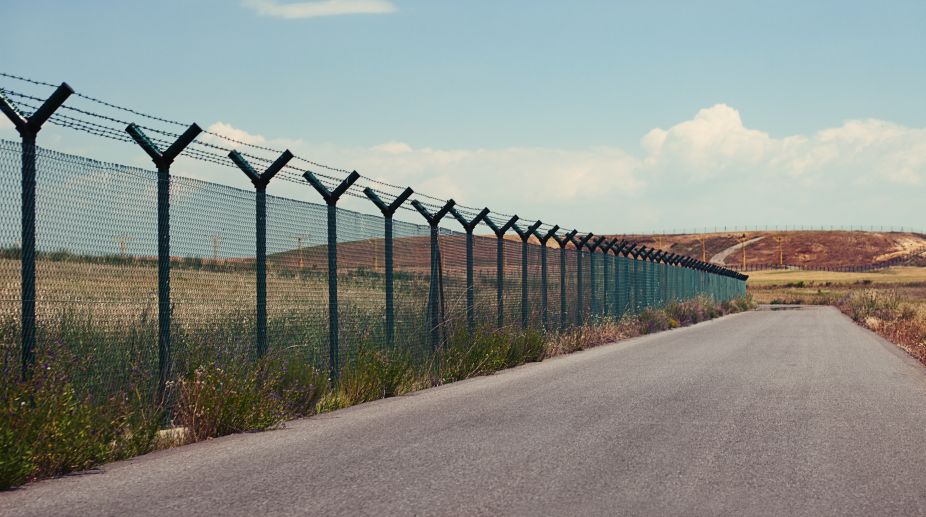The good news from the India-Pakistan border is that it is calm. Defence Minister Manohar Parikkar has said in an interview that “the temperature has come down on the border.” This could mean that India and Pakistan seem to be settling down to a relationship which was expected 70 years ago when partition took place.
If this is the case, both countries should cut down on defence expenditure. We have not introduced the real cut which, at present, is only marginal. Unfortunately, the defence minister’s statement of “India much better armed than before” indicates how much we are still spending on defence. Pakistan, too, has not made any significant reduction in its defence expenditure. This reminds me of cold war era when America made the Soviet Union spend most of its resources on defence. The result was that there was very little left for schools, hospitals and people’s councils.
Advertisement
This led to the disintegration of the Soviet Union and the country got divided into several parts. For example, Ukraine became independent. Russian President Vladimir Putin has said many a time that Ukraine is a part of Russia. But the independence movement belies his statement. Most of the Russian troops are posted on that front.
The effect on Pakistan has been the dilution of whatever democracy exists there. Now the new Army chief is superior to the elected Prime Minister. The pictures that show Prime Minister Nawaz Sharif also depicts that the person in khaki is the real boss. The Pakistan Prime Minister has accepted the arrangement. Islamabad’s worry is that the Taliban are using the soil of Afghanistan to attack Pakistan. Islamabad is no longer safe. Every second day, one incident of bombing or the other takes place in Pakistan, killing several innocent people. There has been exodus from seemingly secure Islamabad to other parts of Pakistan.
Thanks to UN pressure, China has agreed to declare Hafiz Saeed as a terrorist. Pakistan’s defence minister Khawaza Asif has admitted that Pakistan faces danger from terrorists like Saeed who is now under house arrest. This has been a sham so far but the numbers at the UN Security Council were predominantly for declaring him as a terrorist.
Now Islamabad has finally realized that Saeed is linked with militancy in some way but it is to be seen how long Islamabad can keep him under house arrest. In fact, in 2008 the mastermind of the Mumbai attacks was placed under house arrest but was freed by a court in 2009. The question before all of us is whether we should read too much into Saeed’s arrest or take defence minister Asif’s statement seriously?
Observers in Pakistan are well aware that the action against the Lashkar-e-Taiba chief is not a new step or the most serious measure taken against him over the past two decades. Since 2001, the LeT chief has been in and out of detention at least on five occasions. If indeed Pakistan is serious about the UN list, action against Saeed should have been initiated in 2008 itself when he and Jammat-ud-Dawa were put on the UN list of terrorists. The recent action seems to have been timed for the Financial Action Task Force’s meeting to be held in Paris where Pakistan’s terror funding record is likely to come up. Even otherwise, Prime Minister Nawaz Sharif must be worried about the decision of US President Donald Trump who has banned travel from seven Muslim countries. For Pakistan, its nationals will be given visa only after a close scrutiny.
Muslims living in America are a worried lot because they could also be sent out if the President decides to include them on the banned list of Muslim countries. In the case of Indian Muslims, there is no apparent danger but the immigration officials may think different and tar them with the same brush. There are sad occasions when top Indian actor Shah Rukh Khan was detained and the Indian embassy had to intervene to get his entry into the US.
I, too, had a tough time some years ago while entering the US from the west coast. I had a diplomatic passport but still they insisted on searching me bodily. The immigration official explained that most of the visas stamped on my passport were from Pakistan and Bangladesh. He could not make out why I should be often visiting these countries.
I wish New Delhi has picked up the thread from where it had left off when Nawaz Sharif met Prime Minister Narendra Modi the last time in China. They were reported to have had a positive dialogue. But things have not moved further because New Delhi asked Islamabad to ensure that Pakistani soil would not be used by the terrorists. But then incidents like Uri and Pathankot attacks have belied hopes.
Now that Pakistan has detained Hafiz Saeed and Defence Minister Asif’s admission of the dangers from terrorists like the LeT chief is on record, the dialogue can probably resume between the two countries. To go forward, India may have to dilute its position that it would have no talks unless there was a foolproof guarantee on curbs against terrorists’ operation from their soil.
Probably, India may wait and watch for a while before moving ahead. Even Israel has wished it. Nevertheless, it is in the interest of both India and Pakistan to sit across and thrash out the issues. Pakistan, on its part, should put the Kashmir issue on the backburner for the time being. They should, instead, address the immediate problems of poverty, hunger and unemployment.
The writer is a noted journalist, columnist and commentator.











